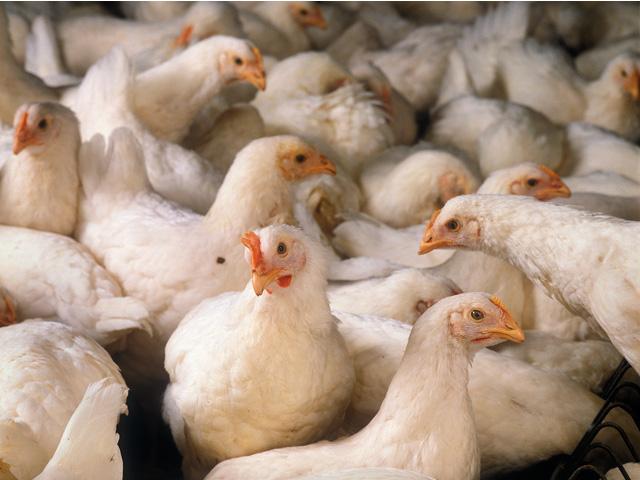Ag Policy Blog
USDA Proposes to End Payment Cuts to Poultry Growers Under Tournament System
USDA is making its biggest move against the poultry industry's "tournament system" pay scale in a new proposed rule that will be published in the Federal Register this week.
Agriculture Secretary Tom Vilsack, in a call with reporters, highlighted the proposed rule, the "Poultry Grower Payment Systems and Capital Improvement Systems" rule. The rule specifically addresses how contract poultry growers are paid as well as demands by processors for growers to make expensive upgrades to their facilities as well.
"This proposed rule, if finalized would address a range of abuses that have occurred in relationship of poultry growers to the poultry grower ranking or tournament payment system, and additional capital investment requirements that poultry companies also commonly as of their contract growers for broilers," Vilsack said.
The rule is one of multiple rules USDA has issued under the Biden administration related to the Packers and Stockyards Act. Last month, a new rule went tin effect, the "Inclusive Competition and Market Integrity" rule. That rule spells out when certain conduct by packers, swine contractors or live poultry dealers is considered "unfair, preferential, unjustly discriminatory or deceptive."
Most poultry producers are paid under contracts with vertically integrated processors that groups growers in a comparison for metrics such as weights and mortalities. Producers who score above the average are paid premiums while those who score below the average see their payments reduced. There would be more disclosure of minimum payment rates, though producers could still receive bonuses for their performance.
Under the rule, processors would be prohibited from discounting a grower lower than the payment rate in their growing contract. A grower who agrees to be paid 6 cents a pound would not have to worry about that payment being lowered to 5 cents a pound, for instance.
P[L1] D[0x0] M[300x250] OOP[F] ADUNIT[] T[]
"The proposed rule would require poultry companies to provide a fair comparison among growers when they use a comparison or tournament payment system," Vilsack said.
Mike Brown, president of the National Chicken Council, said his group, which represents major chicken processors, looks forward to reviewing the rule "and expressing our strong opposition in comments."
Brown said the proposed rule, "This is the latest example of the Biden administration racing to impose its anti-business regulatory agenda ahead of November's election."
Brown added, "This rule -- which Congress never asked for -- will lead to rigid, one-size-fits-all requirements on chicken growing contracts that would stifle innovation, lead to higher costs for consumers, decrease competition, and cost jobs by driving some of the best farmers out of the chicken business.
"The administration likes to deflect the blame at our country's food producers as the reason for high grocery prices, instead of looking in the mirror at their failed policies and increased regulation."
When asked if he had discussions with the poultry industry and whether USDA has industry "buy-in," Vilsack said poultry producers came to him and "basically indicated some deep concerns" about how they have been treated tournament system.
Andy Green, a USDA advisor on competition issues, said the department maintains an open dialogue with the industry. USDA has put out an advanced notice in 2022 about the proposed rule, which will have a 60-day comment period. The volume of comments will dictate the amount of time it takes to go through the proposal and refine it before a final rule would go into effect.
Asked if there is a concern about lessening competition or reducing the quality of poultry products, Vilsack said USDA sees the rule as ensuring the system is fair to both the growers and the processors. Vilsack said it is unfair when a producer signs a country believing they would receive a certain base pay, but then find out after they have invested in facilities that their payments will be docked.
"If you're going to establish a base pay, that has to be a base pay. It can't go below that," Vilsack said.
The secretary also pointed to agreements reached between the U.S. Department of Justice and companies such as Sanderson Farms and Koch Foods over the past year that led to consent decrees over the tournament system.
Chris Clayton can be reached at Chris.Clayton@dtn.com
Follow him on social platform X @ChrisClaytonDTN
(c) Copyright 2024 DTN, LLC. All rights reserved.






Comments
To comment, please Log In or Join our Community .